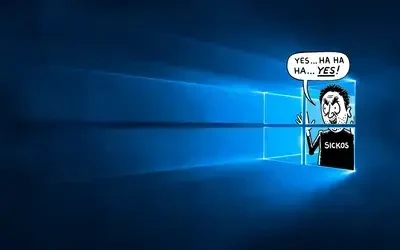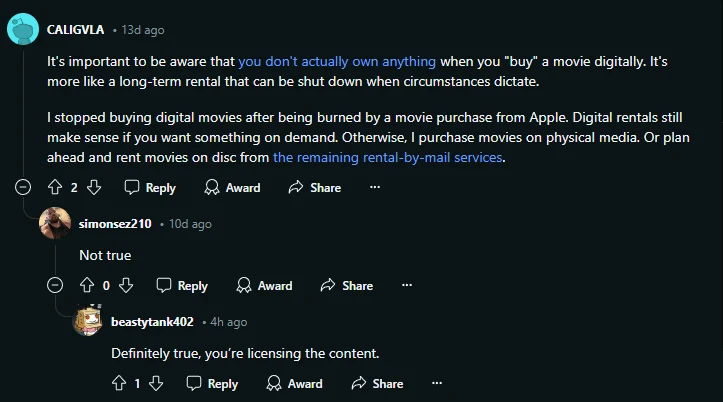Top Poster of the Day:

 Thirtythirst4sissies
Thirtythirst4sissies


Current Registered Users: 28,732

tech/science swag. 
Guidelines:
What to Submit
On-Topic: Anything that good slackers would find interesting. That includes more than /g/ memes and slacking off. If you had to reduce it to a sentence, the answer might be: anything that gratifies one's intellectual laziness.
Off-Topic: Most stories about politics, or crime, or sports, unless they're evidence of some interesting new phenomenon. Videos of pratfalls or disasters, or cute animal pictures. If they'd cover it on TV news, it's probably lame.
Help keep this hole healthy by keeping drama and NOT drama balanced. If you see too much drama, post something that isn't dramatic. If there isn't enough drama and this hole has become too boring, POST DRAMA!
In Submissions
Please do things to make titles stand out, like using uppercase or exclamation points, or saying how great an article is. It should be explicit in submitting something that you think it's important.
Please don't submit the original source. If the article is behind a paywall, just post the text. If a video is behind a paywall, post a magnet link. Fuck journos.
Please don't ruin the hole with chudposts. It isn't funny and doesn't belong here. THEY WILL BE MOVED TO /H/CHUDRAMA
If the title includes the name of the site, please leave that in, because our users are too stupid to know the difference between a url and a search query.
If you submit a video or pdf, please don't warn us by appending [video] or [pdf] to the title. That would be r-slurred. We're not using text-based browsers. We know what videos and pdfs are.
Make sure the title contains a gratuitous number or number + adjective. Good clickbait titles are like "Top 10 Ways to do X" or "Don't do these 4 things if you want X"
Otherwise editorialize. Please don't use the original title, unless it is gay or r-slurred, or you're shits all fucked up.
If you're going to post old news (at least 1 year old), please flair it so we can mock you for living under a rock, or don't and we'll mock you anyway.
Please don't post on SN to ask or tell us something. Send it to [email protected] instead.
If your post doesn't get enough traction, try to delete and repost it.
Please don't use SN primarily for promotion. It's ok to post your own stuff occasionally, but the primary use of the site should be for curiosity. If you want to astroturf or advertise, post on news.ycombinator.com instead.
Please solicit upvotes, comments, and submissions. Users are stupid and need to reminded to vote and interact. Thanks for the gold, kind stranger, upvotes to the left.
In Comments
Be snarky. Don't be kind. Have fun banter; don't be a dork. Please don't use big words like "fulminate". Please sneed at the rest of the community.
Comments should get more enlightened and centrist, not less, as a topic gets more divisive.
If disagreeing, please reply to the argument and call them names. "1 + 1 is 2, not 3" can be improved to "1 + 1 is 3, not 2, mathfaggot"
Please respond to the weakest plausible strawman of what someone says, not a stronger one that's harder to make fun of. Assume that they are bad faith actors.
Eschew jailbait. Paedophiles will be thrown in a wood chipper, as pertained by sitewide rules.
Please post shallow dismissals, especially of other people's work. All press is good press.
Please use Slacker News for political or ideological battle. It tramples weak ideologies.
Please comment on whether someone read an article. If you don't read the article, you are a cute twink.
Please pick the most provocative thing in an article or post to complain about in the thread. Don't nitpick stupid crap.
Please don't be an unfunny chud. Nobody cares about your opinion of X Unrelated Topic in Y Unrelated Thread. If you're the type of loser that belongs on /h/chudrama, we may exile you.
Sockpuppet accounts are encouraged, but please don't farm dramakarma.
Please use uppercase for emphasis.
Please post deranged conspiracy theories about astroturfing, shilling, bots, brigading, foreign agents and the like. It degrades discussion and is usually mistaken. If you're worried about abuse, email [email protected] and dang will add you to their spam list.
Please don't complain that a submission is inappropriate. If a story is spam or off-topic, report it and our moderators will probably do nothing about it. Feed egregious comments by replying instead of flagging them like a pussy. Remember: If you flag, you're a cute twink.
Please don't complain about tangential annoyances—things like article or website formats, name collisions, or back-button breakage. That's too boring, even for HN users.
Please seethe about how your posts don't get enough upvotes.
Please don't post comments saying that rdrama is turning into ruqqus. It's a nazi dogwhistle, as old as the hills.
Miscellaneous:
The quality of posts is extremely important to this community. Contributors are encouraged to provide high-quality or funny effortposts and informative or entertaining comments. Please refrain from posting the following:
Boring wingcucked nonsense nobody cares about that belongs in chudrama
Normie shit everyone already knows about
Anything that doesn't gratifify one's intellectual laziness
Bimothy-tier posts
Anything that the jannies don't like
We reserve the right to exile you for whatever reason we want, even for no reason at all! We also reserve the right to change the guidelines at any time, so be sure to read them at least once a month. We also reserve the right to ignore enforcement of the guidelines at the discretion of the janitorial staff. This hole is a janny playground, participation implies enthusiastic consent to being janny abused by unstable alcoholic bullies and loser nerds who have nothing better to do than banning you for any reason or no reason whatsoever.
[[[ To any NSA and FBI agents reading my email: please consider ]]]
[[[ whether defending the US Constitution against all enemies, ]]]
[[[ foreign or domestic, requires you to follow Snowden's example. ]]]
/h/slackernews SETTINGS /h/slackernews LOG /h/slackernews MODS /h/slackernews EXILEES /h/slackernews FOLLOWERS /h/slackernews BLOCKERS














Jump in the discussion.
No email address required.
What would ZFS get me? My current setup is NFS with mdadm raid 1.
Jump in the discussion.
No email address required.
I mean I personally love the zfs send and recv snapshot functionality.
It allows you to do block level backups.
ie: when you go to use a regular backup program it will scan the entirety of your drive to determine what files changed, zfs already knows this because that's the entire point of snapshots so it just….sends the changes, no scanning! This ends up being an extremely efficient and fast way to handle backups.
Being a modern checksumming filesystem it also gives you "bitrot" or general corruption protection which mdadm won't. This property isn't to exciting until your drives die, then it's suddenly super useful.
There's other benefits that exist like transparent compression, built-in encryption or the general UX of tooling that are small but add up to a very enjoyable stack to use.
Jump in the discussion.
No email address required.
Does it let me configure redundancy like Raid1?
Jump in the discussion.
No email address required.
Yes, absolutely.
They use their own terminology as there's sometimes low level differences, but they're only improvement over traditional raid ime.
RAID1 would be equivalent to a "mirror"
RAID0 would be equivalent to a "stripe"
RAID10 would be equivalent to "striped mirrors"
It also has topologies like RAID5 / RAID6 in the form of raidz1, raidz2 etc.
One of the reasons for the good UX is that zfs controls all layers of the stack.
Everything from actual drive management to the filesystem level is handled by zfs. You don't have to interact with multiple different subsystems by different authors to achieve good results (eg RedHats Stratis system where mdadm is one part of many).
Jump in the discussion.
No email address required.
Hmm, I'm looking on setting up a remote back up of my current setup, I think I'll play with ZFS for that.
Jump in the discussion.
No email address required.
It's super slick.
The zfs send command just dumps a bytestream that you vomit over ssh into zfs recv - very unixy!
It's ideal for remote backups because it'll only send the exact delta of changes so you can minimize the data transfer a ton.
Only thing to watch out for is making sure you understand how snapshots relate to the zfs send. (Ex: if you need to have a common snapshot for the new one to apply.)
Highly recommend Allan Jude's books as I said before.
Jump in the discussion.
No email address required.
More options
Context
More options
Context
More options
Context
More options
Context
More options
Context
More options
Context